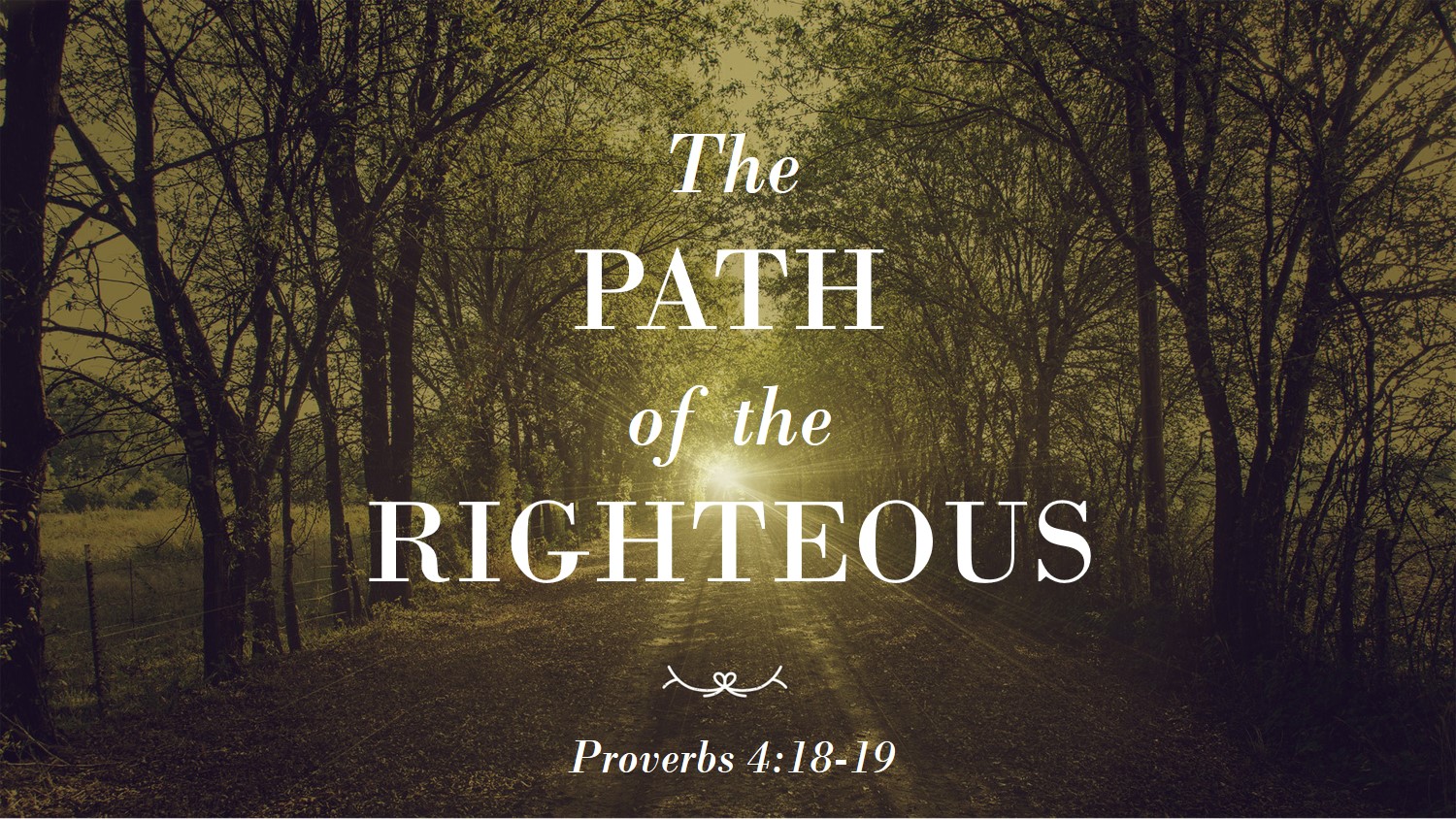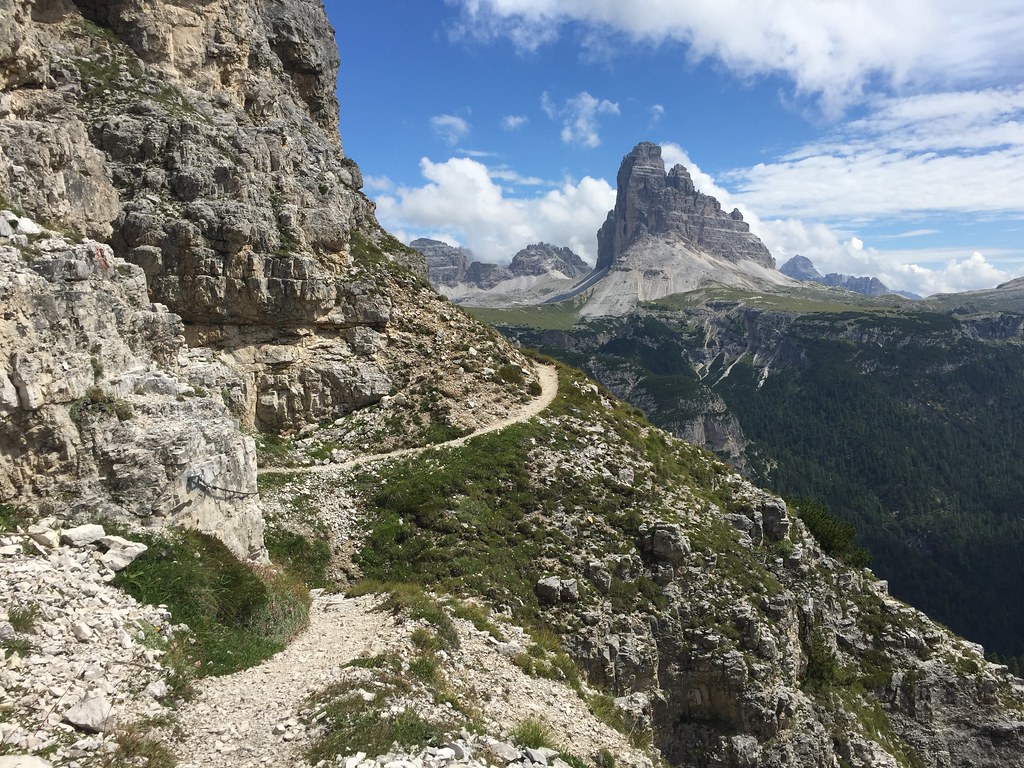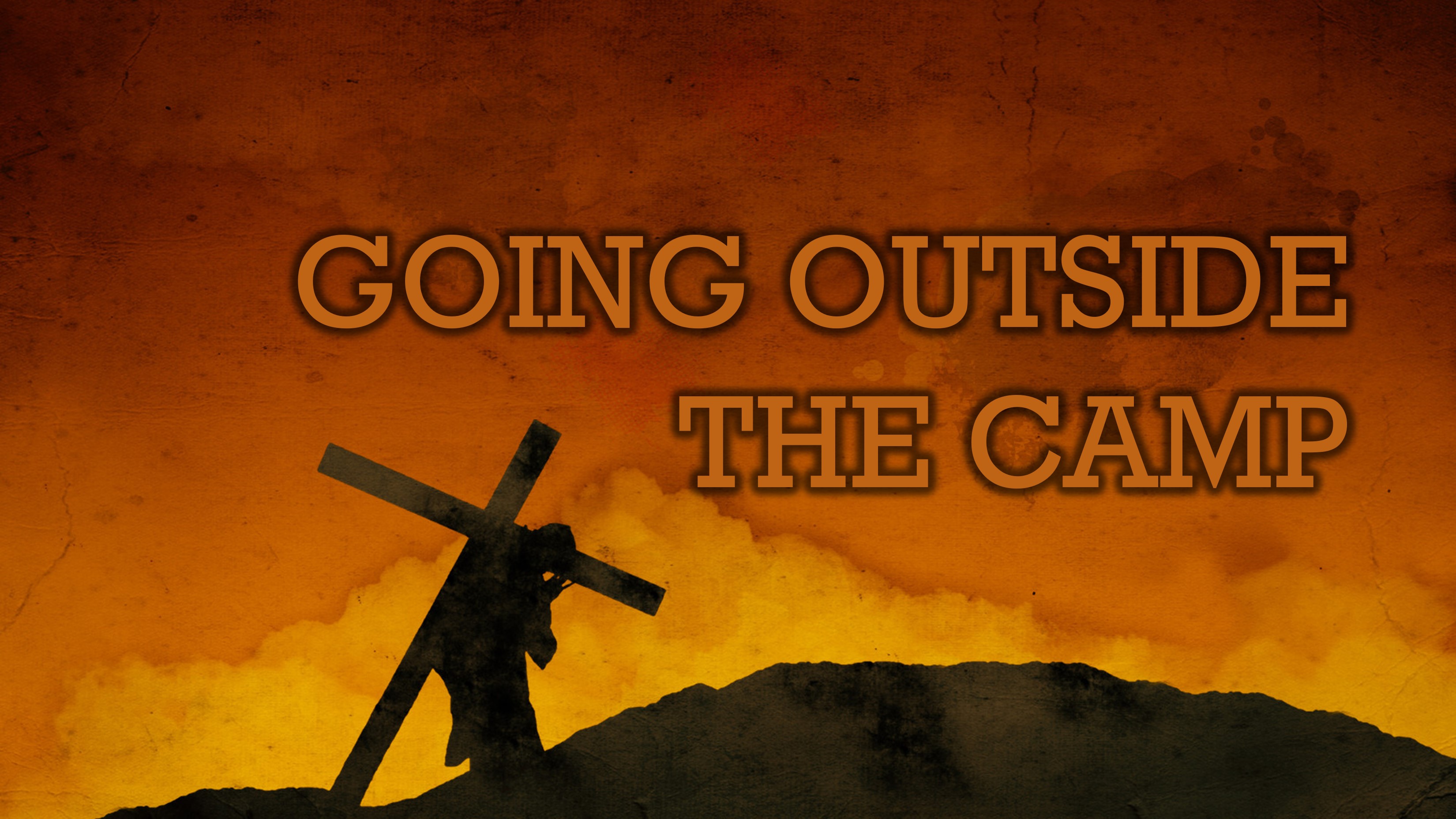Blog
Psalm 136
Thursday, June 03, 2021
Psalm 136 (LMD)
Give thanks to God, for He is good!
His love endures eternally;
The God of gods and Lord of lords,
His love endures eternally.
He spread the earth above the void;
His love endures eternally;
He set the sun and moon on high;
His love endures eternally.
From Egypt, He brought Israel out;
His love endures eternally;
With mighty hand and outstretched arm;
His love endures eternally.
He took them safely through the sea;
His love endures eternally;
But Pharaoh and his host were drowned;
His love endures eternally.
He led them through the wilderness;
His love endures eternally;
He slaughtered great and mighty kings;
His love endures eternally;
He gave His faithful ones the land
His love endures eternally;
To be their own inheritance;
His love endures eternally.
He knew us in our lowliness;
His love endures eternally;
And rescued us from every foe;
His love endures eternally;
To all who live, He gives their food;
His love endures eternally;
Give thanks to Him who reigns above;
His love endures eternally.
Suggested tune: SWEET HOUR
(“Sweet Hour of Prayer”)
The Path of the Righteous
Wednesday, June 02, 2021
Back when Clay and I were organizing our preaching for the month of May, he texted me and asked what two light topics I wanted to preach on. About 10 seconds later, I replied with Psalm 27 and the text I’m going to be preaching on this morning. “Wow; that was quick!” Clay responded.
There’s a reason for that, and it’s because both Psalm 27 and this morning’s passage are passages that I love, passages that make me smile whenever I read them, passages that I try to carry around with me everywhere I go to make sense of life.
Psalm 27 is great, but if I had to pick one of the two, after offering to give up a limb instead, I would pick this morning’s. Look with me at Proverbs 4:18-19. These are two short verses, but they encapsulate everything I love about the word of God. They are simple, they are beautiful, and they are profound. Indeed, they are so profound that I intend to spend all of my time in the pulpit this morning without citing another verse. Let’s see, then, what we can learn from a close examination of the path of the righteous.
There are three key elements in this proverb that help us to understand it, and the first of the three is THE PATH. Note first of all that Solomon says that there is both the path of the righteous and the way of the wicked. In other words, everybody is on a spiritual path.
This seems simple, but it’s quite meaningful. Sometimes, you run into people who think they are spiritually neutral. They’ll tell you that they leave all that God stuff to somebody else and mind their own business. Well, they might think they’re neutral, but God doesn’t think they’re neutral, and the devil doesn’t think they’re neutral either. Their feet are on a path, and they are headed to a destination.
Second, it’s worth noting too that everybody’s path starts out dark. Yes, Solomon says that the path of the righteous is like the light of dawn, but what’s it like before the light of dawn shows up? It’s dark!
In other words, both the righteous and the wicked start out without a spiritual clue. When first we hit that age of accountability, none of us have any sense. We may be blessed with godly parents or other mentors, who are sort of like a spiritual flashlight, but those without help are blundering around in the woods at midnight. Max Dawson likes to say that if you haven’t wrecked your life by the time you turn 22, you probably won’t, but sadly, lots of people do wreck their lives before that. Sometimes their bad decisions leave them with a criminal record or a drug habit; sometimes they cost them their lives and their souls.
Finally, as the above implies, everybody’s path is dangerous. This isn’t like one of those “trails” in the national parks that are four feet wide, paved, and wheelchair-accessible. Instead, it’s more like a deer path in the woods in the middle of nowhere. That’s the way life is for all of us. It’s filled with all kinds of trials and temptations and traps. The devil hopes that we will come crashing into every one of them.
However, the difference between the path of the righteous and the path of the wicked is that the former is illuminated by THE LIGHT OF DAWN. This we should understand not literally, but metaphorically, as referring to spiritual enlightenment. The Bible speaks of many ways we can become enlightened. We can study the word, which is a lamp to our feet and a light to our path. We can benefit from the instruction of older, more mature Christians. We can pray for wisdom. We can observe the lives of others.
Regardless, this is the key difference between the righteous and the wicked. This is what determines the course of our lives and our eternal destinies. The righteous seek enlightenment and benefit from it. The wicked don’t.
Second, because the enlightenment of the righteous is like the dawn, this tells us that the process is gradual. How many of you have ever been outside waiting throughout the time from pitch blackness to full day? It’s not like God flips on a light switch, is it? It’s sloooow! At any given point in the process, the change that is occurring is imperceptible.
So it is with our spiritual enlightenment. There are lots of people who want the wisdom without the Bible study and the meditation and the prayer. Guess what? It doesn’t work like that. If we want God to illuminate our world for us, we have to seek Him day by day, week by week, month by month, year by year, decade by decade. There are no quick fixes. If we want our path to get brighter, there is no substitute for time and effort.
However, as slow as it is, the light of dawn is transformative. You start out in pitch blackness, then you start seeing dim outlines, then a black-and-white vision of reality. Finally, everything fills in with color, and there’s no sign left that such a thing as night even existed.
This is how the illumination of spiritual wisdom is. It changes everything. We see life and the things of eternity in vastly different terms than the people of the world do. The more enlightened we become, the greater the difference between us and everybody else becomes too.
This difference consists of KNOWING OR NOT. The path of the righteous gets brighter and brighter until the course of their lives is fully illuminated. This doesn’t mean that the path of the righteous is safe. I have scrapes on my shins right now because I tripped over a branch in the woods in broad daylight.
So it is for us spiritually too. No matter how wise and spiritually enlightened we become, the devil still trips all of us up occasionally. However, we are able to avoid most of the sins that would entangle us, and even when we do get entangled, at least we know what happened and can learn from it.
It is not so for the wicked. The wicked aren’t hiking through the woods in the daytime. They’re still out there in the dark. Again, this may not be something that we experience normally. The streets of my neighborhood all have streetlights. If I want to, I can go wandering around in reasonable safety.
However, that wasn’t the experience of the ancient Israelites, and if we’re out in the boonies, even today, on an overcast night, it can get can’t-see-your-hand-in-front-of-your-face kind of dark. That’s what life is like for the wicked, but they’re trying to go down the path anyway, and, as you would expect, they end up tripping over all kinds of stuff. The sins and troubles that the righteous see and avoid are the most prominent features of the lives of the wicked. Spiritually speaking, their shins look like somebody’s been whaling on them with a golf club!
Worse still, the wicked don’t even know why they’re stumbling. They don’t get it, they don’t learn, and they go on doing the same dumb stuff. You ever known somebody like that? It seems like their life is playing the disaster song on repeat. Over and over and over again, it’s the same mistakes. These are people who don’t learn because they refuse to learn.
It might seem hard to be righteous. It might seem hard to make that effort to be here Sunday morning and Sunday evening and Wednesday evening. It might seem hard to make time for that Bible reading every morning. It might seem hard to remember to constantly seek wisdom from God in prayer. You know what’s a lot harder? Not doing any of those things.
Walk Worthy of God
Tuesday, June 01, 2021
In 1 Thessalonians 2:12, Paul summarizes his exhortation of the Thessalonians with the above four words. To Christians, they should be both deeply inspiring and deeply humbling. God has called us into His kingdom and glory. Now, we are responsible for walking in a way that is worthy of Him.
What sorts of things befit the chosen people of God? Dignity, for one, an awareness of the great price that was paid for us and a resolve to live accordingly. We were nobodies, but Christ redeemed us and made us the heirs of all things. This is not cause for arrogance, but it is a call to recognize our own value, to see the folly of trading away our birthright for the lentil stew of sin. What a shame it is when Christians sell themselves cheaply to the devil! What a waste!
Walking worthy also means walking in peace. When the Wall Street financier steps out of his limo in front of the five-star restaurant, he doesn’t scurry to the back alley to fight over food scraps with the rats and the heroin addicts. Why not? Because he already has so much that such a sordid squabble isn’t worth his time.
So too for us. Our lives are hidden with Christ in God. We have an inheritance that is imperishable, undefiled, and will not pass away. Indeed, everything that is worth having, all of us already have.
Nonetheless, the devil is very good at tricking us into caring about things that aren’t worth our time. Somebody insults us or treats us badly, so we get mad and slash back at them, as though we had not already been seated in the heavenly places with Christ. That’s not walking worthy, and it’s especially not walking worthy on social media, where the smallness of our spirits is displayed for all to see. The sight of an heir of the grace of life fighting to defend their ego makes a brawl in a dumpster seem downright respectable by comparison!
Finally, walking worthy means walking in love. We should not expect people of the world to be very good at this. After all, they can love and serve only from their own resources, and even the greatest human spirit is quickly exhausted.
By contrast, Christians have access to the unsearchable riches of Christ Jesus. We share in the example and the power of His supreme self-sacrifice. Because of His love, we can love like Him.
I have seen brethren dedicate themselves to a quiet, continual, thankless act of service for decades. Day in and day out, there they are, persevering in love. Even as I applaud their faithfulness, I know (and they would say) that the strength that sustains them is not theirs. It is the strength that they have found in Jesus.
The worthy walk is a quiet walk. It does not compete in worldly contests or win worldly prizes. Its practitioners rarely make headlines in life or in death. Nonetheless, the Lord knows who they are, and the day will come when they shine forth as the sun in the kingdom of their Father.
Going Outside the Camp
Wednesday, May 26, 2021
As Clay noted in his evening sermon last week, the last segment of the book of Hebrews, like the last part of many New-Testament epistles, contains practical instructions and admonitions, the so-what of the doctrinal discussion earlier in the book. However, even the last part of the book of Hebrews is still the book of Hebrews. If we just glance through Hebrews 13, we’ll see quotations from the Old Testament and other allusions from the Old Testament that most people off the street wouldn’t understand.
It can be tempting to take a buffet approach to Bible contexts like this. We go through and we pick out the parts about singing praises to God and not cheating on our spouses, and we ignore the parts that aren’t as accessible. However, there are two problems with that approach. First, it’s lazy, and Christians are called to press on, not to be lazy. Second, it cheats us of the full measure of the encouragement that we’re supposed to gain from the word of God. Hebrews may be harder to figure out, but once we do, it’s worth it! With this in mind, then, let’s consider what the Hebrews writer means when he talks about going outside the camp.
The first section of this context that we’re going to be considering is about THE CHANGELESS CHRIST. Look with me at Hebrews 13:8-9. First, we see the writer observing that Jesus Christ is the same, yesterday, today, and forever. As He was, so He is. As He is, so He will be.
This has two significant implications for us. First, it tells us that the help He offers will remain the same. I often talk about how we should be encouraged by what the Bible tells us about the faithfulness of God. This is why we should be encouraged. God hasn’t changed and Jesus hasn’t changed, so we can expect the same blessings from them today.
Christians in the first century faced all kinds of trials and troubles and persecutions, but the Lord got them through it. If Jesus Christ is the same, that tells us all we need to know about what He offers us. So too, through Jesus Christ, the disciples of the first century found forgiveness of their sins. Saul of Tarsus, the self- described chief of sinners, was forgiven so completely that he became an apostle! If that’s how completely Jesus forgave Saul, how completely will the same Jesus forgive us?
Second, if Jesus is the same, His expectations remain the same. The things that pleased Him in the first century will please Him in the twenty-first century too. On the other hand, the things that He did not authorize in the first century He does not authorize today either. If we want to honor Him today, the Scriptures tell us all we need to know.
This is why the admonition of v. 9 is so important. If Jesus’ blessings and expectations remain the same, above all else, we must not go astray. We must hold to His word, and we must hold to Him. If we do, it’s all on the table, even eternal life. If we don’t, we stand to lose it all because we have forsaken Him.
The Hebrews writer justifies this claim by describing OUR EXCLUSIVE ALTAR. Let’s keep reading in Hebrews 13:10-12. Here, the Hebrews writer is playing off of his comments about food regulations in v. 9. The Jews were trying to tell the Jewish Christians that they couldn’t eat certain foods. By contrast, the Hebrews writer wants those Jewish Christians to understand that they have spiritual food that the unbelievers couldn’t eat.
Here is where things start getting confusing unless we’re experts in Leviticus, which, since we haven’t taken Josh’s class next quarter yet, we might not be! Though the writer doesn’t give us a Scripture citation, he’s referring to the rituals for the Mosaic Day of Atonement, which is described in Leviticus 16. In particular, he’s talking about the regulation of Leviticus 16:27, which required that when the goat was sacrificed for that yearly sin offering, the Israelites weren’t supposed to eat it. Instead, they had to take it outside the camp and burn it.
Going outside the camp, then, isn’t just about physical location. It’s about spiritual separation. Symbolically, by burning that goat, the sins of the people were removed from them and destroyed.
However, the Hebrews writer wants us to understand that rather than just being a weird Old-Testament custom, the goat of the sin offering is a type of Christ. Just like the goat was burned outside the camp, Jesus was taken outside the city walls of Jerusalem and crucified. He too took the sins of the people out from their midst.
There are a couple of crucial differences, though. Nobody ate the goat of the sin offering, but all of us have become partakers in Christ and His altar. Under the Law of Moses, the blood was sprinkled on the ark of the covenant, but all of us who are baptized believers have been sprinkled with the blood of Christ ourselves. Christ separates us from our sins, but He also unites us with His Father and Himself.
All of this leads irresistibly to the writer’s conclusion about GOING TO JESUS. Let’s finish our reading this evening with Hebrews 13:13-14. If we want to be united with Jesus, we have to go where He is—outside the camp. This doesn’t mean that we have to literally walk the pilgrimage route to Golgotha. Instead, it means that we have to spiritually separate ourselves from the world.
This sounds very duh, but it’s actually quite painful. As Clay talked about last week, the Jewish Christians suffered a lot. They were thrown in prison, they had their possessions looted, and if they kept on, they were going to have their blood shed. The Hebrews writer basically says to them, “What did you expect?” Jesus was mocked and humiliated as He left the camp; those who want to do the same should expect to bear His disgrace too.
This is true for us too. When our family gives us a hard time because we’re Christians, when people online accuse us of being hateful because we stand for Jesus and His word, when our friends don’t want to be our friends anymore because we can’t go drinking with them, we are going outside the camp to join Jesus, bearing His disgrace. There’s no way to pick the world and Jesus at the same time, and when we leave them, and they laugh at us for it, we’re picking Him.
The next verse explains why anyone would endure this kind of abuse. We leave the city here because we’re seeking the city which is to come. We leave behind the earthly Jerusalem so we can claim our place in the heavenly Jerusalem. In the spiritual realm, there is no dual citizenship. Either we are citizens of the world, which will be destroyed, or we are citizens of heaven, which won’t be.
Sure, declaring ourselves to be citizens of heaven will bring suffering on our heads here, but it also is the only possible path to eternal blessing. We can’t spend our time the way the world does. We can’t spend our money the way the world does. Instead, we have to go to Jesus now so that we can be with Him forever.
The Lord's Discipline
Tuesday, May 25, 2021
Hebrews 12:5-13 makes a crucial but underappreciated point. The life of the Christian can be unpleasant, and sometimes, the One who is making it unpleasant is God. This is at odds with the worldly vision of God as an indulgent grandparent who does nothing but shower gifts upon us. However, it meshes neatly with the Bible’s picture of a heavenly Father who will do whatever is necessary to make sure that we spend eternity with Him.
In interpreting this passage, there are several things to note. First, this is a text about discipline. God is not being gratuitously cruel; rather, He is reacting to sin or spiritual weakness in our lives. Additionally, His goal is not condemnation but correction. If an abstract warning doesn’t get the point across, maybe pain will.
This pain can be administered in a couple of different ways. The first is through the rebuke of the word. From time to time after I preach, someone will tell me, “That sermon really stepped on my toes!”
Of course, it’s not the sermon that’s stepping on the toes of the convicted Christian. It’s the Scriptures. Whether through the lips of someone else or through our own reading and study, all of us will encounter things in the Bible that are painful for us to consider. We don’t like to hear the Holy Spirit telling us we need to make some changes! However, the most unpleasant passages also are the ones we need to consider most closely.
Second, God also corrects us through the consequences of sin. As the Hebrews writer observes in this context, righteousness often is painful right now but beneficial later. Sin is the opposite. We enjoy it in the moment, but we frequently find its fruits to be bitter.
Sometimes this is due to the nature of wickedness. God warns us away from sinful things precisely because they are harmful and will make our lives worse. When we don’t listen to Him, we are likely to find out why He instituted the commandment in the first place!
At other times, though, it may be that God’s providential care is responsible for our painful lesson. I am reminded here of the drought in Israel in 1 Kings 17 that followed Ahab’s decision to worship Baal in 1 Kings 16. Baal was a fertility god, responsible for sending rain and making crops grow. Though Ahab didn’t get the message, God wanted him to understand that seeking agricultural blessing from a false god would have the opposite effect.
So too with the Baals of our lives. When we turn to sin because we think it will make our lives better, and it has exactly the opposite effect, we should suspect the presence of God’s providence. He wants to leave us with no cause to doubt that serving Him is best.
The response to God’s correction, though, is up to us. We can pull an Ahab and ignore it. Alternatively, we can listen to the Hebrews writer and strengthen the weaknesses so painfully highlighted for attention. This process often isn’t pleasant either, but only through perseverance can we hope to inherit eternal life.


